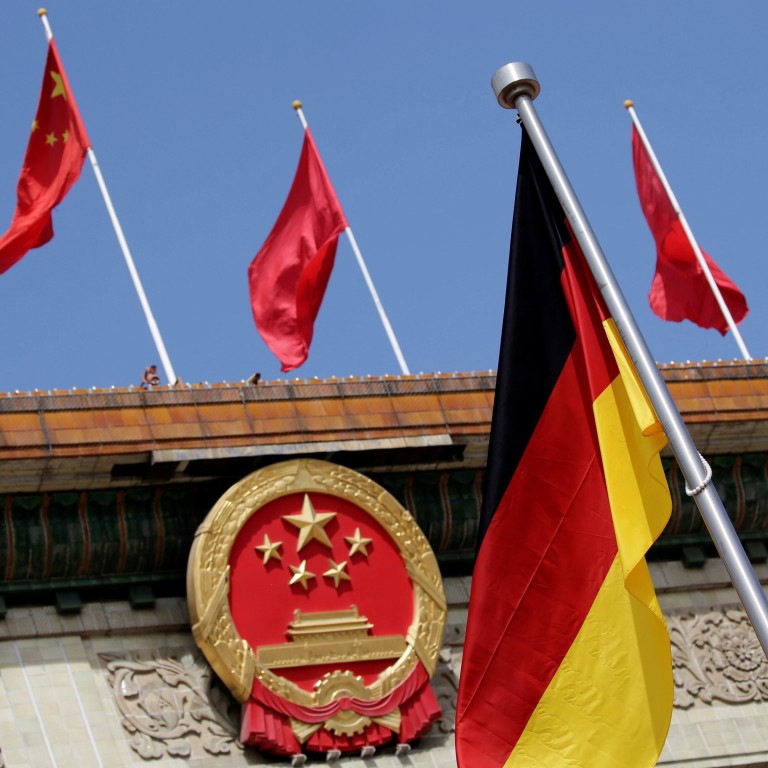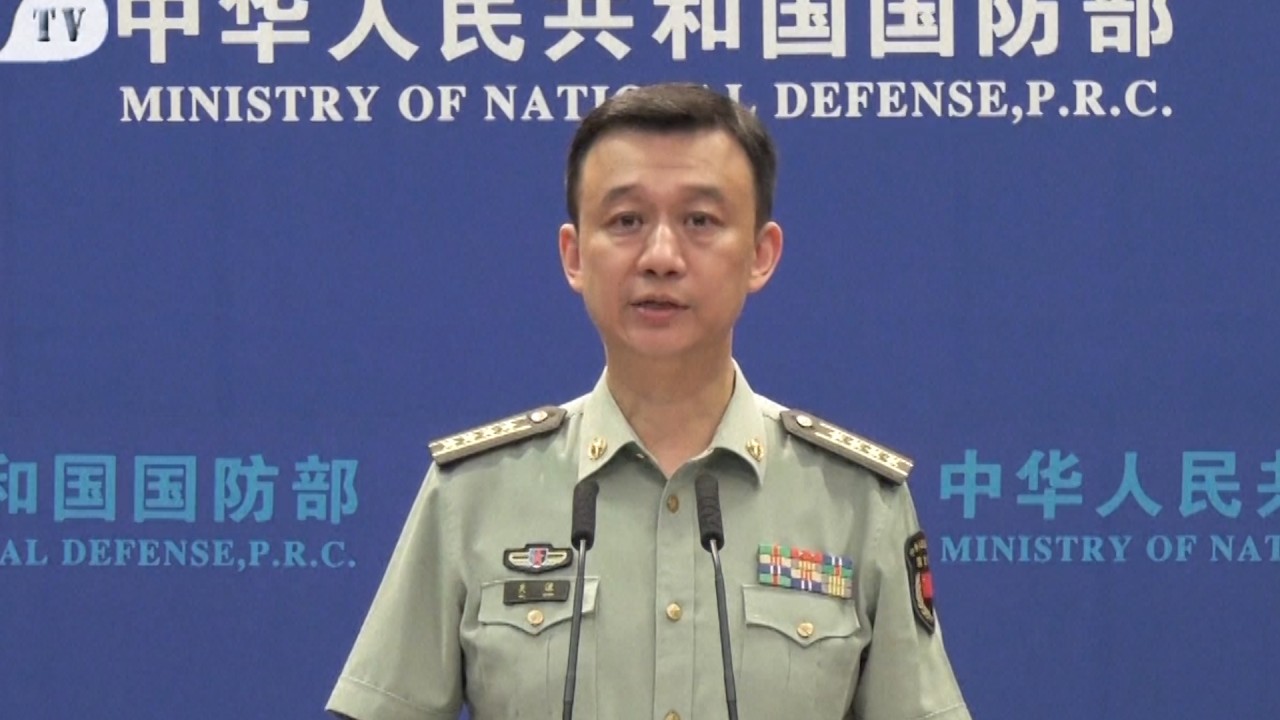
Why is Germany wading into the Indo-Pacific’s strategic waters?
- Berlin’s relationship with Beijing is founded on economics and trade but now the European giant is taking a bigger interest in the region on the other side of the world
- Among the main concerns is the South China Sea, an area at risk of becoming a flashpoint
But the day after he left, Germany announced it was adopting an Indo-Pacific strategy, suggesting a reassessment of its approach towards China.
Germany’s relationship with China has long centred on economics and trade but now that is expected to encompass geopolitical interests and human rights.

02:56
Germany presses China on Hong Kong security law, seeks access to Uygurs in Xinjiang
France became the first European country to follow suit in May 2019, aiming to be “an inclusive and stabilising mediating power” in the region. It held the first trilateral dialogue of foreign ministers with India and Australia on Wednesday, with topics covering coronavirus relief and maritime security.
Now Germany, China’s biggest economic partner in Europe, has become the second on the continent to signal its Indo-Pacific interests with the guidelines outlined in “Germany-Europe-Asia: shaping the 21st century together”.
The release of the document comes with just two months to go until the US presidential election and observers said it appeared to be an attempt to improve relations with Washington that had been strained by differences over trade, defence and the Iran nuclear deal.
But Germany’s Indo-Pacific strategy varies from the US approach in terms of its focus and coverage. Analysts said it was not designed to be “anti-China” but could be used to make a tougher stand on China.
The guidelines suggest the need for more security cooperation and diversification of economic partnership with states in the region to “avoid unilateral dependencies”.
The document described China as a regional power and an emerging world power “that calls the rules of the international order into question in certain quarters”.
It also said Germany would also seek more defence and cybersecurity cooperation with Singapore, Australia, Japan and South Korea, and digital transformation such as 5G with “partner countries”.
“No country should – as in the time of the Cold War – be forced to choose between two sides or fall into a state of unilateral dependency,” it said.

00:51
China says military drills in South China Sea target no particular country
There were signs last month that Beijing was aware of a possible change in German policy.
Wu Ken, China’s ambassador to Germany, said in an interview with Chinese state media in late August that the China-Germany relationship had gone beyond bilateral ties to strategic influence.
He said Beijing was ready to intensify strategic cooperation with Germany and both sides should resume dialogue at all levels to strengthen mutual political trust.
Cui Hongjian, director of European studies at the China Institute of International Studies, agreed that Germany was looking beyond its trade interests.
“In economy and trade, Germany has aimed to avoid putting all of its eggs in one basket. What is new is, that after a period of hesitation and observation, it has started to herald the Indo-Pacific idea,” Cui said.
“This is down to political and security considerations. Against the backdrop of China-US tensions and the China-India stand-off, Germany has finally rolled out the Indo-Pacific strategy to have a voice on the security flashpoints in the region.”
Chinese military fires ‘aircraft-carrier killer’ missile into South China Sea in ‘warning to the United States’
The strategy said Germany supported a substantive and legally binding South China Sea code of conduct between China and the member states of the Association of Southeast Asian Nations, some of which have competing claims to the waters.
That push could gain added momentum, with Germany seeking to work with France to form a European strategy on the Indo-Pacific.
South China Sea: the dispute that could start a military conflict
Shi Yinhong, a professor on international relations at Renmin University in Beijing, said European countries were not happy with China over the South China Sea and its growing naval presence in the Indian Ocean.
“The strategic confrontation [between Beijing and Washington and its allies] is very tense in the Indo-Pacific. Neither side has shown signs of concession,” Shi said.
He said that with relations with the US in free fall, “China attaches great significance to relations with Europe”.
“But no progress will be possible without suitable and durable policy adjustments from Beijing towards Europe which would then enable corresponding policy changes from the European side,” he said.
The European Council on Foreign Relations, a think tank in Brussels, said it was important for the European Union to invest in its relationships with third countries, particularly those in the Indo-Pacific.
“These close ties, established through mechanisms such as free-trade agreements and security partnerships, not only enhance Europe’s capacity to act in the region but also serve its broader interests in shaping norms and standards globally,” it said in a report released on Thursday.

